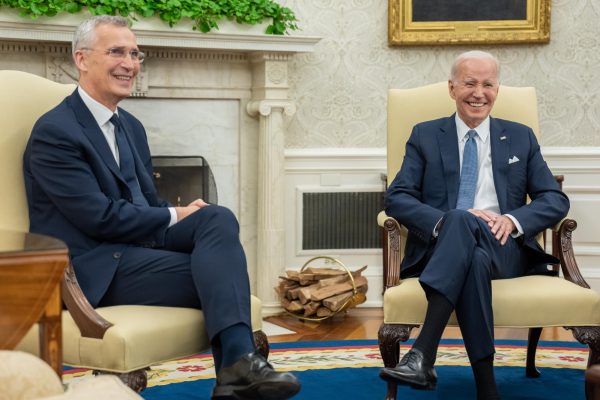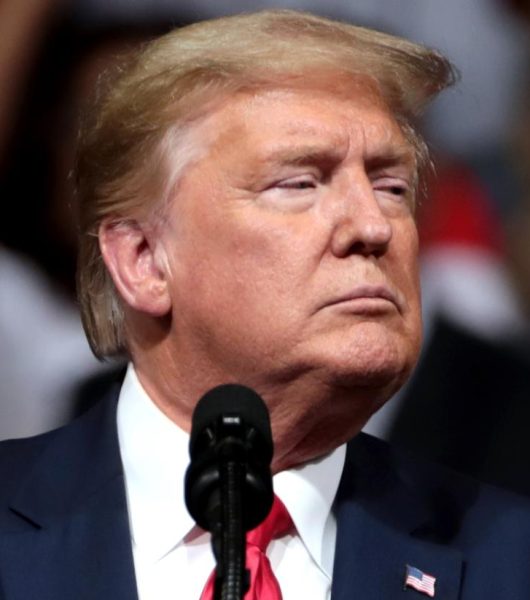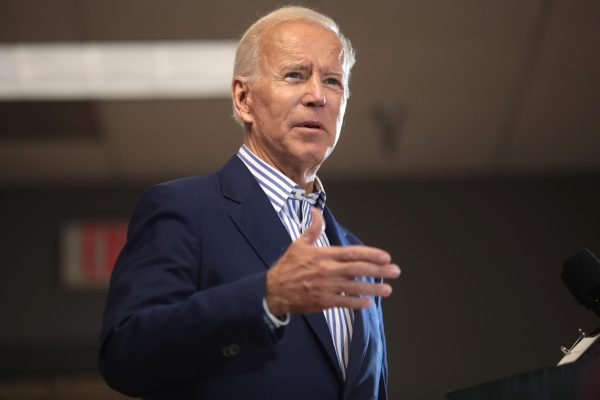President Trump signed a new version of NAFTA: Democrats not invited to signing even though negotiated deal was made possible through the Democratic controlled House

Samira Bouaou/The Epoch Times (Flickr)
President Donald Trump returns to the White House in Washington on Aug. 19, 2018. (Samira Bouaou/The Epoch Times)
February 4, 2020
President Donald Trump signed the new version of the North American Free Trade Agreement (NAFTA), called the United States-Mexico-Canada Agreement (USMCA) with hundreds of guests including farmers, CEOs and workers in attendance at the White House on Wednesday, Jan. 29, 2020 and praising Republican legislator, for their work in helping to push the deal.
The signing excluded Democratic representatives including the Speaker of the House, Nancy Pelosi, who was most instrumental in the passage of USMCA.
According to New York Times, Trump excluded Democrats from the ceremony despite their key role in securing the final version of the deal that passed with overwhelming majorities in both the House and Senate. Many suggest that the snub to Democrats was over the impeachment proceedings against the President.
Trump closed the original deal, updating the North American Free Trade Agreement in 2018, but Democrats insisted on changes.
According to The Hill Rep. Debbie Dingell (D-Mitch) criticized the original deal from the Trump administration and they insisted on changes because what it proposed wasn’t sufficient. Democrats not only were not invited but also not being recognized for their work done for their role in the deal.
Speaker Nancy Pelosi (D-Calif.) said at a morning news conference about Democrats reaction for not being invited to the White House.
“The White House hasn’t invited House Democrats to their USMCA signing ceremony. But we’ll be well represented in the huge changes to the original USMCA draft that Democrats wrested out of the administration on labor, prescription drugs, environment and enforcement mechanisms,”
Even if, rewriting the 26-year-old NAFTA agreement was a major Trump campaign promise, Democrats and many trade unions have also been given significant support of the deal after they secured changes that make the one of the fastest-track trade agreements ever signed by either party.
USMCA is a revised trade agreement beneficial to North American workers, farmers, and businesses. The agreement will create more balanced trade, support job creation and increase wages for Americans, which in turn will boost economic growth in North America.
In December 2018, the U.S., Canada, and Mexico reached an original accord after a year of negotiations among administration and lawmakers who finally received congressional approval. Since its implementation, NAFTA has failed to deliver as many benefits as expected. The agreement also impacts American, Canadian, and Mexican workers.
How does the USMCA trade deal differ from NAFTA
One of the changes is in the automobile manufacturing industry.
In the original NAFTA, in order be eligible for USMCA’s tariff-free trade, automobiles must have 62.5 percent of its components manufactured in Mexico, US, or Canada. The percentage has now been increased to 75 percent under the USMCA. This change aims to increase productivity in the manufacturing sector, as well as the automotive workforce.
The other change is in the agriculture sector. In the original agreement, there are no tariffs on most agricultural goods traded between the United States, Canada and Mexico. Both Canada and Mexico are already the largest trading partners. Canada and Mexico are also the top two export markets for the U.S farmers and ranchers. Under the USMCA, those tariffs will remain zero, provides increased U.S. market access for Canada and vice versa.
Another important change in the new NAFTA is the sunset provision. Previously, there was no automatic sunset provision or the conditions under which the agreement will end.
The agreement is cancellable with six months‘ notice, allowing any three countries a withdrawal after providing that notice. However, the new USMCA will expire in 16 years later, meaning that the agreement will continue for the full 16–year period. Every six years, the three countries will be subject to a review where they can get together again to negotiate or to extend the term.











